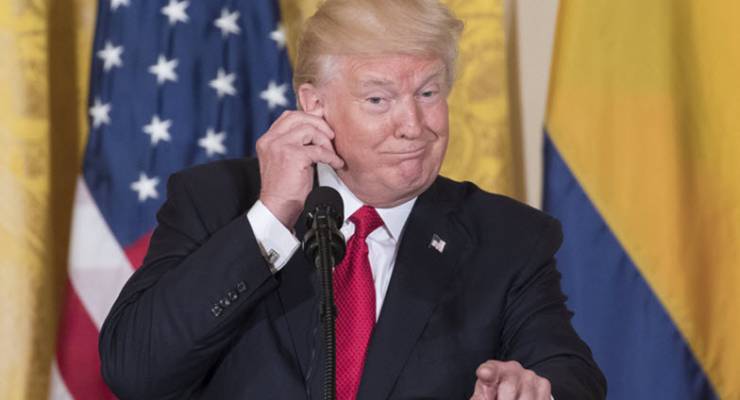
“Extreme violence,” writes Naomi Klein in The Shock Doctrine, “has a way of preventing us from seeing the interests it serves.”
Klein’s 2007 book details what she terms “disaster capitalism”, or the way in which political leaders take advantage of the shock caused by natural and human-made disasters, to impose drastic political and economic measures the public would not otherwise easily accept.
“I’m not a conspiracy theorist,” she said at the time, her thesis being that, although the instigators of economic shock therapy are not responsible for the catalyst disasters, they are fully prepared to exploit them.
So it was following the terror attack in New York City in October, when Sunni extremist Sayfullo Habibullaevic Saipov, said to be inspired by ISIS, allegedly rammed a rental truck in pedestrians on the streets of Manhattan, killing eight.
Saipov, originally from Uzbekistan, is a US resident who entered the country in 2010 after winning what is known as the green card lottery (official name: Diversity Visa). As the name suggests, the aim of the program is to encourage a diverse range of immigrants from across the world – only citizens of countries with a low immigration rate are eligible for the 50,000 annual visas on offer.
US President Donald Trump wasted no time in blaming the lottery for the disaster, tweeting for an end to the program in favour of a “merit based” approach. Trump also blamed the Democrats, calling the program a “Chuck Schumer beauty”, in reference to the Democratic Senator who played a large role in the program’s creation, even though it was signed into law in 1990 by Republican president George Bush the elder.
Since then, it has been targeted by both Republicans and Democrats — including Trump and Schumer himself — who have itched to end the “outdated” program, which used to primarily benefit Europeans but now results in most visas going to Africans.
Trump, who declared that the Texas church massacre — in which white, American-born man Devin Kelly shot a praying congregation, killing 26 execution-style — was not an issue of gun control but a “mental health problem“, had no problem linking the New York attack to the diversity program, claiming it allows people in without proper vetting. (Muslims, it appears are immune to mental health disorders.)
Of course, there is a vetting process for the lottery. I know because I’m one of the 1 million or so holders of a diversity immigrant visa. While it’s true the first stage is a lottery in that your number may be randomly selected by a computer, this does not mean automatic entry to the USA.
“Winners” still must submit a background check, have completed high school or equivalent, and hold an unblemished criminal record (keeping in mind, the US does not expunge adult criminal convictions). It’s not quite as “easy” a route to the US as Trump claims, although it is certainly quicker for those who are eligible.
So why use the attack as a pretext to end the green card lottery? Because a shocked and frightened public is unlikely to question the link between a visa program many of them have never heard of and terrorism.
Trump’s vow is classic shock therapy in that it exploits a tragic event as a pretext for a policy that, in actuality, has little to do with the event itself. But where it does deviate from Klein’s thesis is that, economically, it makes no sense.
According to Ethan Lewis, associate professor of economics at Dartmouth University, “immigration that emphasises diversity, rather than merely merit, tends to attract more people who specialise in occupations uncommon among US-born workers” — leaving everyone better off.
Security-wise, the move also makes little sense. Since 1975, green card holders have, in total, been linked to the deaths of 16 people in terror attacks in the US, but only Saipov received his green card through the diversity lottery.
By seeking an end to the diversity visa, which by definition aims to expand the country’s ethnic, cultural, and racial make-up, Trump not only deftly avoids a discussion of the links between foreign policy and terrorism, he is attempting to impose a cultural ideal, even prioritising a homogeneous, predominantly white population over a robust economy.
Of course, there will be collateral damage. While Trump’s so-called Muslim ban affected only those from certain Muslim-majority nations (whether Muslim or not), ending the diversity visa program will directly impact people from all backgrounds — including Australians.
If you’ve ever wondered whether the often-punitive measures taken against non-white, non-Western people, for whom the white majority struggles to feel empathy, can and will be expanded and used against others, this can certainly qualify as evidence.
Extreme violence, it seems, has more than one way of preventing us from seeing whose interests it serves.







I think society, democracy and freedom within the US have all degenerated to such a degree that any move to prevent certain members of the human race from entering the country, is actually doing the excluded a favour.
I have many friends, of decades standing, in the Benighted States who cannot understand my reluctance to visit.
I cannot understand why anyone would want go there – the place is full of amerikans.